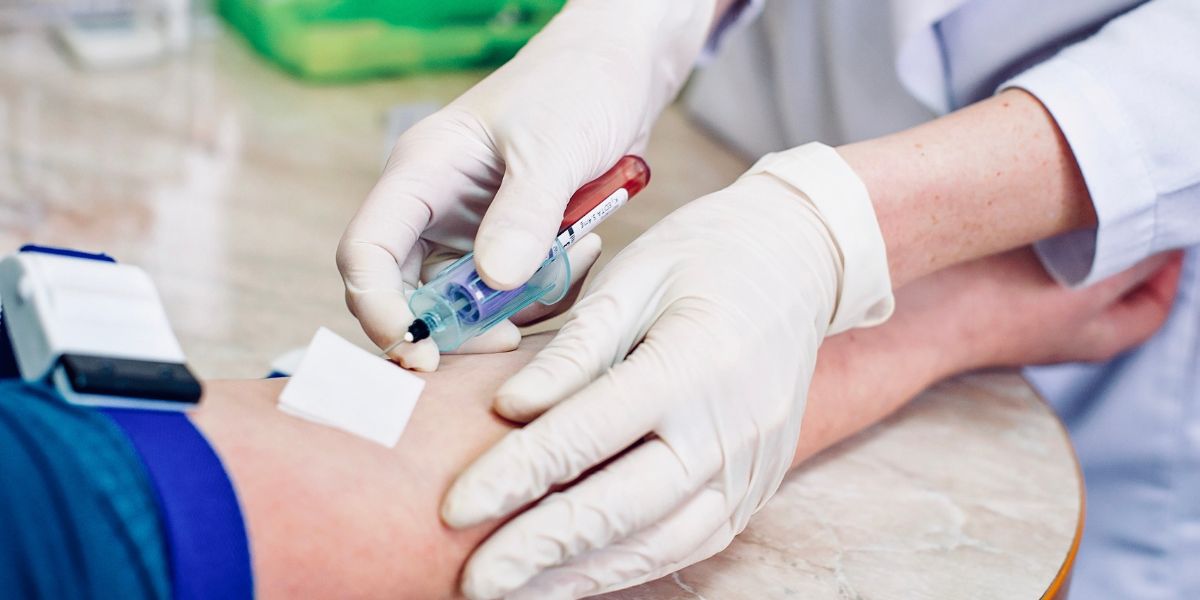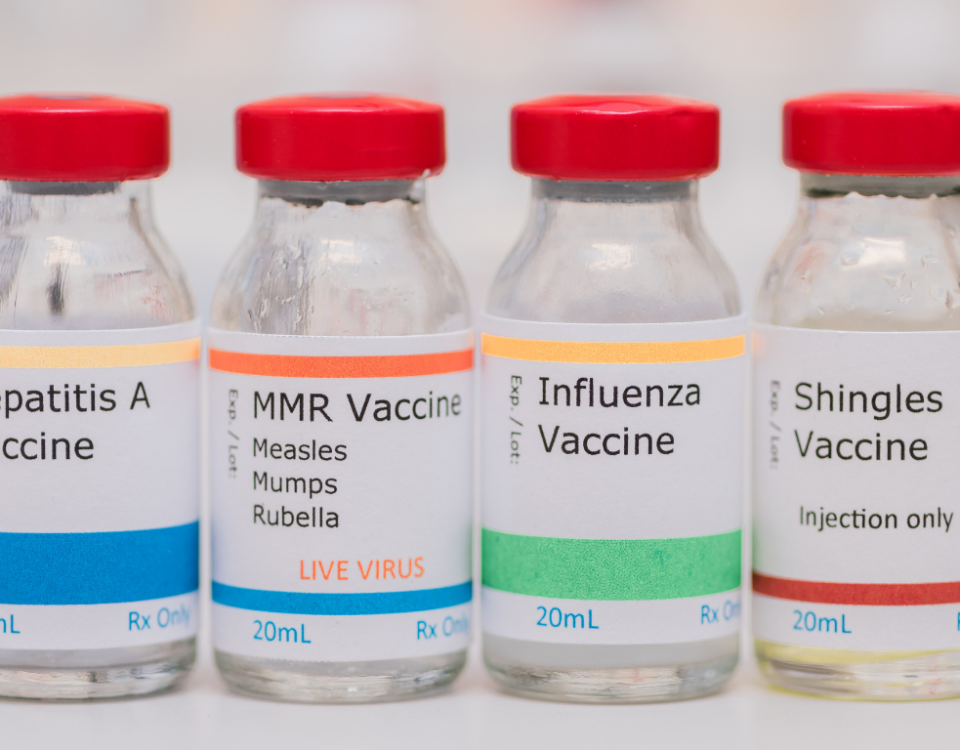What is Delayed Food Sensitivity?
by: Dr. Paul Chang, General Practitioner, Regis Medical
Last updated: November 28, 2025
Unlike immediate food allergies, which cause swift and sometimes severe reactions, delayed food sensitivities are often hidden culprits behind chronic symptoms such as fatigue, bloating, skin flare-ups, and joint pain. These sensitivities involve immune system responses that occur hours or even days after consuming a trigger food, making them difficult to detect without proper testing.
Delayed vs. Immediate Reactions?
IgE vs. IgG Immune Responses
Immediate food allergies involve IgE (Immunoglobulin E) anti-bodies, which cause rapid-onset symptoms like hives, swelling, or anaphylaxis — typically within minutes to an hour.
Delayed food sensitivities involve IgG (Immunoglobulin G) antibodies and manifest subtly over time, often 12–72 hours after ingestion.
Why IgG Reactions Are Harder to Spot
Because the immune reaction is slow and cumulative, people with IgG-mediated food sensitivities may not associate their symptoms with what they ate two days ago. This leads to ongoing exposure, chronic inflammation, and a worsening of symptoms.
What Happens in the Body During a Delayed Food Sensitivity Reaction?
When a person with a sensitivity eats a trigger food, the immune system produces IgG antibodies that bind to that food’s proteins. This immune complex can:
- Trigger inflammation in the gut
- Disrupt the intestinal lining (aka “leaky gut”)
- Enter the bloodstream and cause systemic inflammation in joints, skin, brain, or lungs
- Over time, this contributes to a variety of non-specific, chronic symptoms such as chronic inflammation— often misdiagnosed or ignored.
Common Symptoms of Delayed Food Sensitivities
Digestive Issues
- Bloating, gas, constipation, or loose stools
- Cramping or IBS-like symptoms
- Reflux or heartburn not responding to medication
Skin Conditions
- Acne, eczema, or rosacea
- Rashes or chronic itch
- Psoriasis flare-ups
Neurological & Mood Symptoms
- Brain fog and difficulty concentrating
- Mood swings, anxiety, or low mood
- Headaches or migraines
Fatigue & General Inflammation
- Fatigue despite adequate rest
- Joint stiffness or swelling
- Muscle aches or unexplained pain
Why Conventional Allergy Tests May Miss These Reactions
Skin prick tests and IgE blood panels are excellent at detecting classic allergies (like peanuts or shellfish), but they do not capture delayed IgG sensitivities. That’s why people can test “negative” for allergies but still feel unwell after eating certain foods.
What Causes Delayed Food Sensitivities to Develop?
Gut Health Imbalance
Leaky gut, caused by poor diet, stress, medication (like antibiotics or NSAIDs), or infections, allows partially digested food proteins to enter the bloodstream and trigger immune responses.
Overexposure to the Same Foods
Regular consumption of the same foods (like eggs, wheat, or dairy) without rotation can overwhelm the immune system over time.
Chronic Stress & Immune Dysregulation
Stress weakens gut barrier function and shifts the immune system into a pro-inflammatory state, increasing susceptibility to food sensitivities.
How Are Delayed Food Sensitivities Diagnosed?
The most reliable method is an IgG food sensitivity blood test, which measures the immune system’s response to specific food proteins. This allows a clear understanding of which foods may be driving inflammation.
Other methods like elimination diets are helpful, but they:
- Are time-consuming
- Require strict adherence
- May not detect multiple sensitivities at once

Managing Delayed Food Sensitivities
Identify and Eliminate Trigger Foods
Work with a healthcare provider or dietitian to interpret your IgG results and temporarily remove reactive foods.
Heal the Gut Lining
Incorporate gut-supportive nutrients like:
- L-glutamine
- Zinc carnosine
- Probiotics
- Anti-inflammatory herbs (e.g., turmeric, quercetin)
Reintroduce Foods Gradually (If Possible)
Once inflammation subsides, some individuals may tolerate reintroducing low-reactive foods after 8–12 weeks.
Final Thoughts: You Don’t Have to Live with Chronic Symptoms
Many people live with delayed food sensitivities without realising their food is the cause of their discomfort. Identifying and managing these triggers can lead to clearer skin, better digestion, improved mood and energy, and reduced inflammation.
If you're dealing with persistent symptoms, chronic fatigue, or inflammation without a clear diagnosis, it's worth exploring whether delayed food sensitivity is the missing link.
Screen for Food Intolerances at Regis Medical
IgG Food Intolerance tests, up to 270 foods.
Disclaimer:
The information on this website, including but not limited to, text, graphics, images, videos and all other materials contained on this website is for informational purposes only. None of the material is meant to replace a certified and registered Doctor's professional medical advice, diagnosis, and treatment.
No warranties or representations are given in respect of the medical information. Regis Medical, Regis Medical’s staff, and the website's operator will not be held liable if a user suffers any injury or loss after relying upon the medical information on this website.
Any devices used for technology-enhanced therapies are intended for use only for general well-being purposes or to encourage or maintain a healthy lifestyle and is not intended to be used for any medical purpose (such as the detection. diagnosis, monitoring, management or treatment of any medical condition or disease). Any health-related information provided by this device or software should not be treated as medical advice. Please consult a certified and registered Doctor for any medical advice required.
Children’s Allergy Doctors. (n.d.). Delayed food allergy. Retrieved April 24, 2025, from https://childrensallergydoctors.com/delayed-food-allergy
Food Allergy Research and Resource Program (FARRP). (n.d.). General information on food allergies and sensitivities. University of Nebraska–Lincoln. Retrieved April 24, 2025, from https://farrp.unl.edu/farrp-resources/general-information-food-allergies-sensitivities
Healthline. (2023, May 9). What is a delayed food allergy? Retrieved April 24, 2025, from https://www.healthline.com/health/allergies/delayed-food-allergy
Liu, E., & Jaramillo, R. (2010). Food allergy and gastrointestinal manifestations. Current Opinion in Pediatrics, 22(5), 635–639. https://pubmed.ncbi.nlm.nih.gov/20978655/


